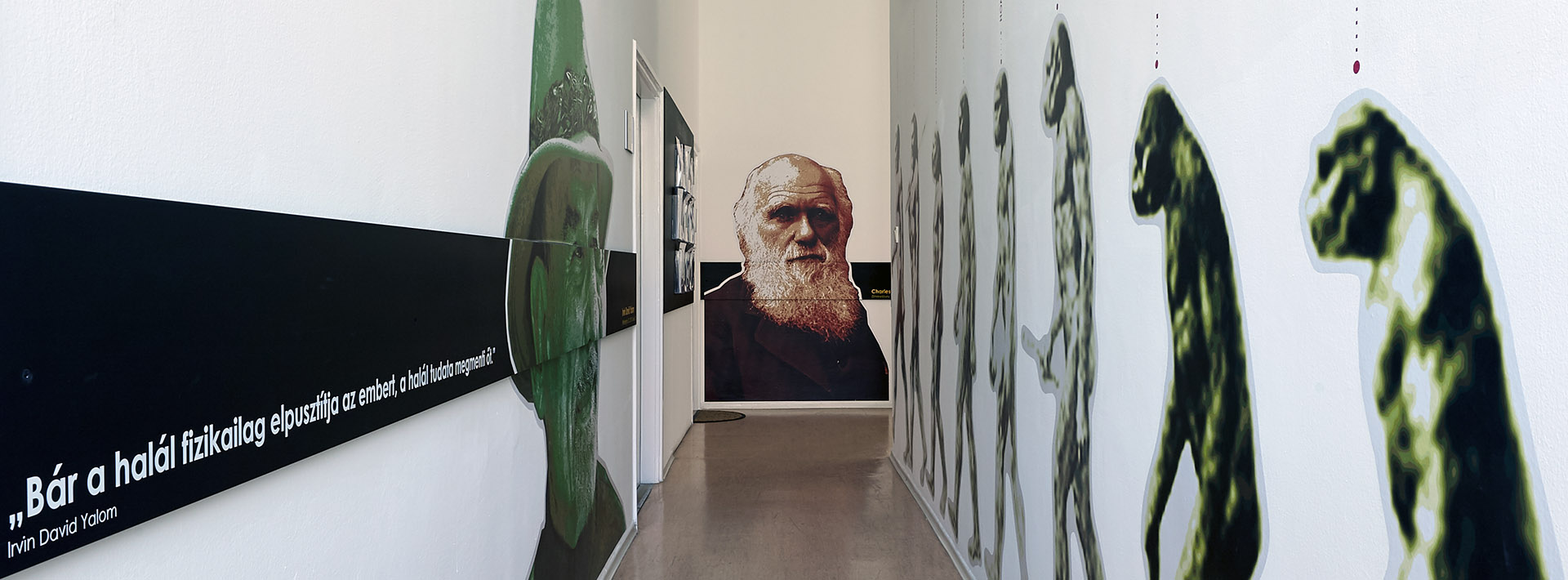Data
Official data in SubjectManager for the following academic year: 2023-2024
Course director
-
Dr. Róbert MÁTICS
associate professor,
Department of Behavioural Sciences -
Number of hours/semester
lectures: 24 hours
practices: 0 hours
seminars: 0 hours
total of: 24 hours
Subject data
- Code of subject: OPF-SB5-T
- 2 kredit
- Pharmacy
- Optional modul
- both semesters
-
Course headcount limitations
min. 5 – max. 15
Available as Campus course for 15 fő számára. Campus-karok: ÁOK GYTK TTK
Topic
This course is based on the idea that if you want to understand any behaviour, you have to first understand the „phenotype” of it, and then work your way back to find out what happened a second before that behaviour occured, then a minute before and so on, until you understand what happened millenia before, meaning the evolution of that behaviour. In the first half of the course we go through this stages with general (but the best) examples and then try to understand behaviours like religiosity, terrorism, war etc. Robert Sapolsky of Stanford is currently (January 2023) working on his new book with the title „Determined: The Science of Life Without Free Will”. In case we have time left, in the last part of the course we can handle the questions emerging from the argument of the absence of Free Will.
Lectures
- 1. General introduction - Dr. Mátics Róbert
- 2. The context of behaviour - Dr. Mátics Róbert
- 3. One second before: Thalamus, Amygdala, Insular cortex, Frontal cortex - Dr. Mátics Róbert
- 4. One second before: Mesolimbic systems, Fusiform cortex, Anterior cingulate - Dr. Mátics Róbert
- 5. Motivation, Moral Transgressions and Self-Discipline - Dr. Mátics Róbert
- 6. Seconds to minutes before: Environmental stimuli - Dr. Mátics Róbert
- 7. Subliminal information - Dr. Mátics Róbert
- 8. Hours to days before: Testosteron, Oxytocin - Dr. Mátics Róbert
- 9. Status, Trust, Aggression, Generosity - Dr. Mátics Róbert
- 10. Weeks to months before: Neuroplasticity - Dr. Mátics Róbert
- 11. Back to Adolescent: Dopamine and Frontal cortex - Dr. Mátics Róbert
- 12. Childhood and Fetal Life: Epigenetics - Dr. Mátics Róbert
- 13. The Genetic Level: Cell, Body, Environment - Dr. Mátics Róbert
- 14. Decades to Millenia before: Culture, Social Environment, Ecology - Dr. Mátics Róbert
- 15. Terrorism now and then - Dr. Mátics Róbert
- 16. What is Power? The Stanford Prison Study - Dr. Mátics Róbert
- 17. The Evolution of Religions - Dr. Mátics Róbert
- 18. Millions of years back: Individual- and Kin Selection, Reciprocal Altruism - Dr. Mátics Róbert
- 19. Everything changes: Ecosystems, Cultures, People - Dr. Mátics Róbert
- 20. Us/Them, Anti-social Punishment - Dr. Mátics Róbert
- 21. Pseudo-kinship, Pseudospeciation - Dr. Mátics Róbert
- 22. Symbols and Metaphors we kill by - Dr. Mátics Róbert
- 23. Tragedy of the Commons - Dr. Mátics Róbert
- 24. Summary, Questions, Feedback - Dr. Mátics Róbert
Practices
Seminars
Reading material
Obligatory literature
Literature developed by the Department
Handouts
Notes
Recommended literature
Robert M. Sapolsky: Behave: The Biology of Humans at Our Best and Worst. Penguin Press, May 2, 2017.
Steven Pinker: Enlightenment Now: The Case for Reason, Science, Humanism, and Progress. Viking Press, February 13, 2018.
Conditions for acceptance of the semester
Maximum of 25 % absence allowed
Mid-term exams
Essay (1 or 2 A4 pages) sent per e-mail to bobmatix@gmail.com within 2 weeks after the course
Making up for missed classes
It is not possible to do make-up classes
Exam topics/questions
-
